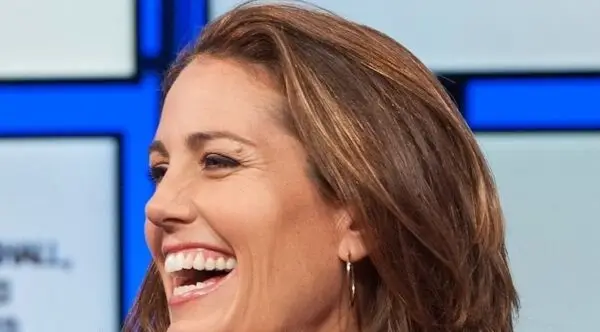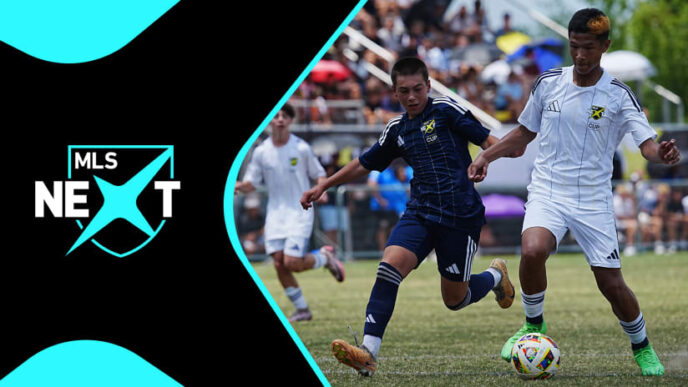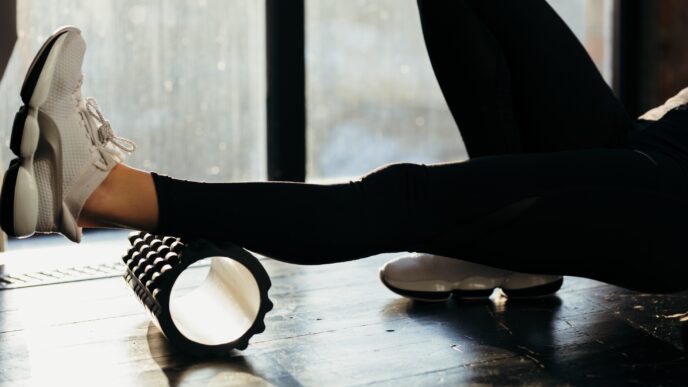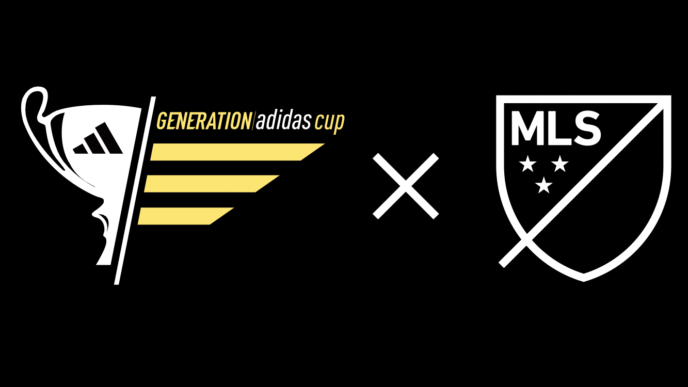Julie Foudy Speaks Out on Youth Soccer: Why Joy and High School Soccer Matter
Julie Foudy is more than just a soccer legend—she’s a champion for the game’s future. A former U.S. Women’s National Team captain, two-time FIFA Women’s World Cup winner, and Olympic gold medalist, Foudy continues to inspire as an ESPN analyst and advocate for youth soccer.
In this exclusive interview, Foudy shares her insights on the importance of high school soccer, why keeping the joy in the game matters, and how young players can thrive on and off the field. Known for her fearless leadership and unwavering passion, Foudy has been a driving force in advancing opportunities for girls in soccer.
Speaking with SoccerToday courtesy of Allstate, Foudy discusses the impact of the Allstate All-America soccer program, which recognizes the nation’s top high school junior players. Don’t miss her take on the state of youth soccer today and what she believes is key to the sport’s future success.
Julie Foudy has played soccer at the highest level in the world, and her leadership inspires people of all walks of life. She is a pioneer in the rights of women in the beautiful game and a champion of young girls on the fields of America. Never bashful to share her views, she joins us courtesy of Allstate.
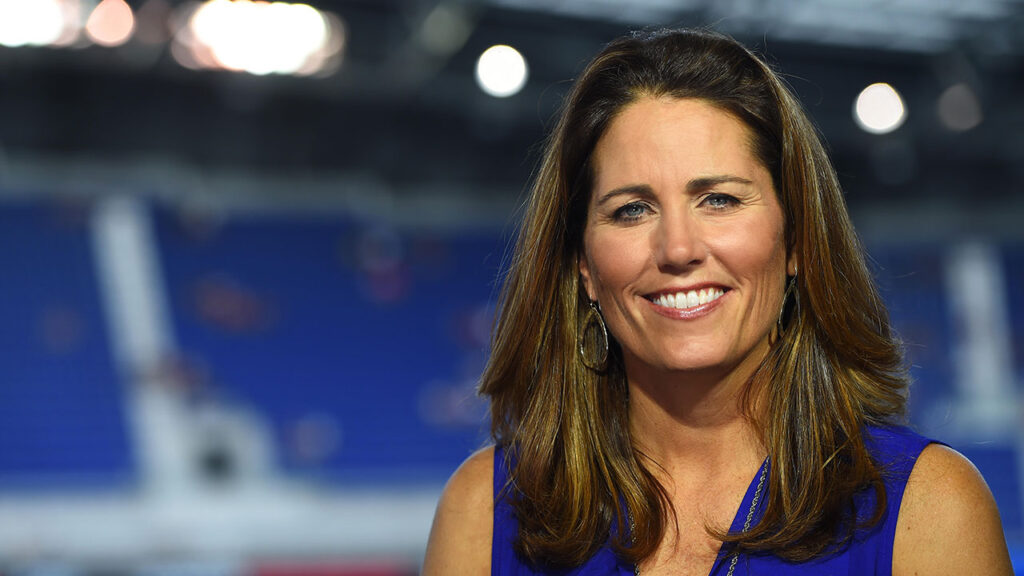
Julie Foudy is the Former captain of the U.S. Women’s National Team, two-time FIFA Women’s World Cup Champion, two-time Olympic gold medalist, and current ESPN analyst.
We interviewed Foudy who will coach some of the high school players selected to compete in the Allstate All-Americans at 2019 MLS All-Star in Orlando. Foudy will be joined by fellow celebrity coaches Brandi Chastain, Brian McBride, Taylor Twellman.
Foudy is proud to work with the Allstate All-America soccer program which is recognizing the nation’s top high school junior soccer players.
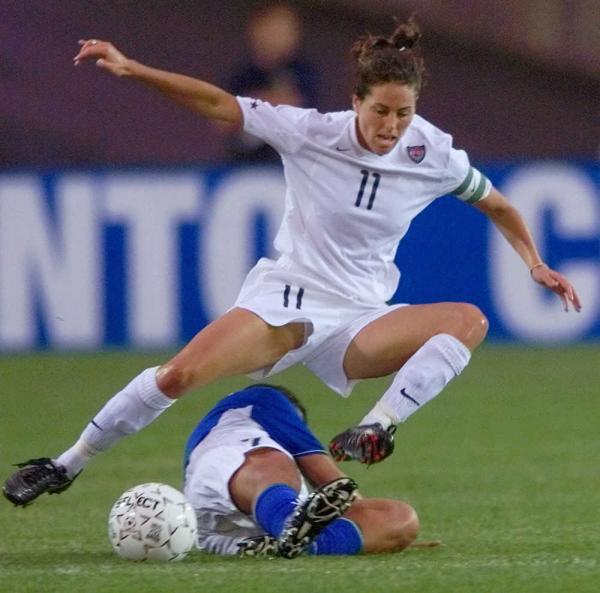
Diane Scavuzzo: Thanks for making time for us today. I’d like to start off with a few questions on the value of playing high school soccer.
Girls who are selected and chose to play in the U.S. Soccer Development Academy (DA) are not able to participate in high school soccer — what is your perspective on high school soccer as opposed to playing in the DA?
Julie Foudy: Well, I have always maintained that high school soccer was one of the best experiences for me, and it saddens me that with the Development Academy, girls are forced to choose between the two because your experience playing high school soccer is so different from playing on your club team.
In high school, you’re playing in front of your peers. You’re playing in front of your community. Perhaps you have a different role on that team than you do with your club team. You’re usually having to take a leadership role — there’s just so many positives to it that I love.
Diane Scavuzzo: If you could whisper in the ears of teenage girls playing soccer today, what would you say?
Julie Foudy: I don’t want them to ever lose the joy — this is what I talk to kids about all the time. Youth soccer has become so intense — I’m all for competition, but there’s got to be a joy to what you’re doing.
In my era, I think we did a really good job of finding that joy and holding on to it.
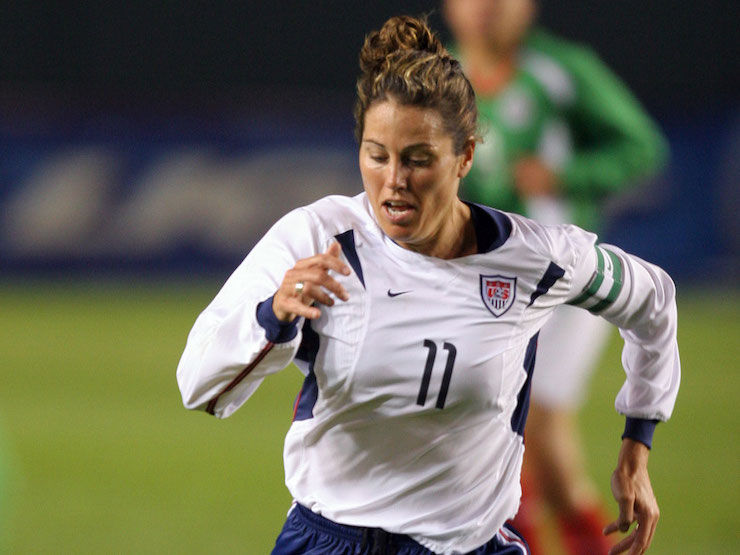
Kids today have a lot of pressure — there are a lot of discussions about what college kids are going to, and what flight they are playing, and if they are going to play on a Development Academy team — and, lost in all of this is that sports is this wonderful gift that teaches so much about life.
Diane Scavuzzo: What do team sports teach kids?
Julie Foudy: Learning what it is like to be a great teammate and celebrating others is one of the many things that sports teach kids. When I was young, I learned so many things by playing alongside these amazing women — so I want to tell players that first and foremost to remember the joy in playing the game.
I want today’s players to embrace the joy and make it a part of their team culture.
I think we’re constantly looking to coaches or outside sources for setting the team culture when the players can have a huge hand in doing that.
Diane Scavuzzo: When you were playing, was the landscape of youth soccer simpler? Would you say things have improved today?
Julie Foudy: We need a couple days for this one.
Diane Scavuzzo: Then you’re going to love my next question. It’s on gender equality.
Julie Foudy: Well, a few things have improved. The fact that there are more girls playing today, and there are more opportunities to play at more levels, is all great, but, I think youth soccer has become a bit confusing.
It’s confusing for the parents.
There was an innocence and a freedom to your play when I was younger that I think is lacking today.
I know we can’t dial it back all the way, of course, but we have to continue to emphasize the importance of team chemistry, the importance of being a great teammate.
All the things that keep players playing — the players who aren’t the stars of their team, who are not the captains of the team, or who are scoring all the goal, it is important to keep these players playing. I feel like we lose players today because we don’t give belonging to a team enough emphasis.
If you’re not at the highest level, and you’re not one of the stars, then you can get parents saying, “Well, really, do you want to continue this sport?” Well, it’s teaching me about life. Again, it’s this gift, so I think we need to do a better job of honoring the team. And, all the power that comes with having a close team, and having good team chemistry.
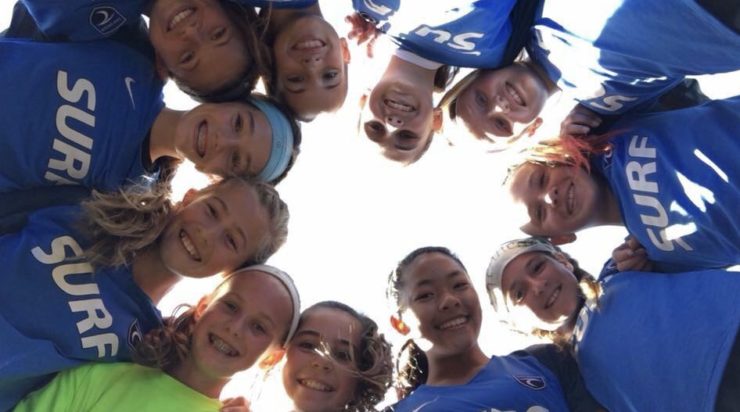
Diane Scavuzzo: Do you think players stay together on a team long enough to really gel as a team and develop that special chemistry?
Julie Foudy: No. Players today hop. You get guest players that come in. You get several teams per age group. I think we’ve lost sight of that the fact winning and team chemistry are not mutually exclusive.
Winning and the joy of sports — I think there’s something to be said with having your core group. I played with the same group for 10 years when I was growing up and to this day, they are still some of my best friends.
Today, it’s hard to get that same kind of squad feel where who know this is my posse, this is my team — these are the players who have my back, and I wish that pendulum would shift a little bit back to that.
Diane Scavuzzo: What are your thoughts on gender equality in the world of soccer in the USA?
Julie Foudy: Sadly, it’s required that players have to rattle the cage to bring these topics to light.
I wish we lived in a society that said, here’s the right thing to do and we’re going to do it.
But, we’re not there yet, right?
And, so, instead you have to try to change the mindsets of people and starting back when we were playing in the ’80s and ’90s, we did a lot of that. But, in my opinion, it takes too much of the players having to risk their careers and world championships and the Olympics to get it done — which always makes me sad.
These players who speak up are incredibly courageous to do so.
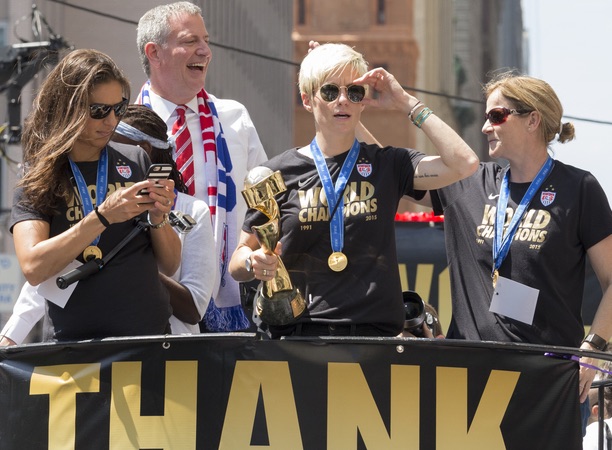
Diane Scavuzzo: Do you believe U.S. Soccer respects women?
Julie Foudy: I do. I do think they respect the team. I think they have come a long, long way from the days of us really having to shake that cage pretty hard but I still think there are steps they can take.
They’ve seen the power and the potential behind the Women’s National Team, and the popularity of the team, and we had to convince them of that back in my day.
Now they see it.
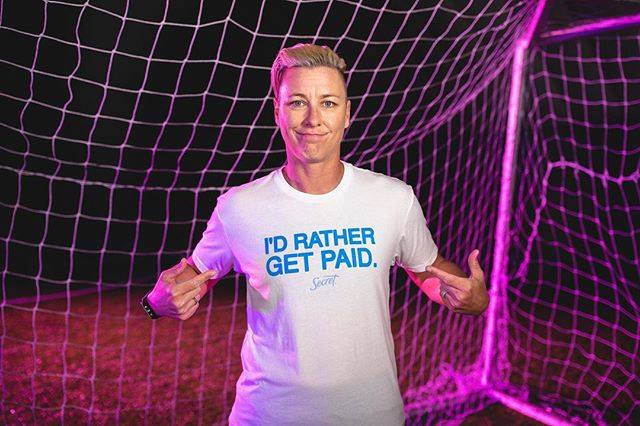
Diane Scavuzzo: Why are women still trying to fight for equality?
Julie Foudy: I think changing mindsets takes time.
And, I’m not a very patient one but, you’re having to change the people’s mindsets within the organization, and largely, the people in decision making positions in these organizations are men — white men — who, whether it’s a conscious or unconscious bias, are not accustomed to watching women’s soccer, or waking up every day asking how they are going to build the market for women’s soccer.
And, so that’s why I think it’s also so important that we get more women in decision-making positions, of course — because then you start to see that culture shift.
Diane Scavuzzo: What advice would you want to give young players today?
Julie Foudy: I think the thing I would say to the younger generation is that you’re growing up in a time with all these great opportunities — you’re still going to have to stand up and speak out for what’s right in a lot of situations, but it’s a great time for women and girls to be involved in soccer.
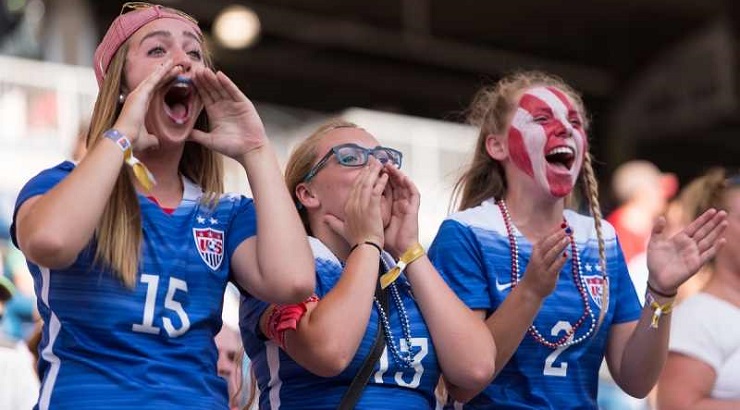
Thanks to Title IX, girls have tremendous opportunities to play sports in this country. So, I think the biggest message I give is to never forget what a gift it is, right?
Diane Scavuzzo: What are your thoughts on the Girls Development Academy?
Julie Foudy: I think women and men are very different in terms of our development and our approach to soccer.
And, I have argued this for a long time to U.S. Soccer, you can’t just take the Men’s and Boy’s DA and say, okay, we’re going to do the same thing with the women.
It’s very different.
For example, high school soccer is a very social element for girls and if I honestly had to make a choice when I was in high school, I would have chosen high school soccer.
And, so to make girls make a decision between playing with their friends in high school and playing for the DA is not a good one for girls.
Diane Scavuzzo: So, what’s the main difference between developing girls and developing boys?
Julie Foudy: Girls need more diversity in what they’re doing. I mean, if you would ask me to play soccer five days a week with two games on the weekend, I would have been like …
“Are you crazy?”
Right? And, that’s not to say all girls are like that, but I think, in general, girls are more diversified in wanting a balance. And, recognizing the social-cultural significance — is pulling them off of their high school teams the best thing for them?
